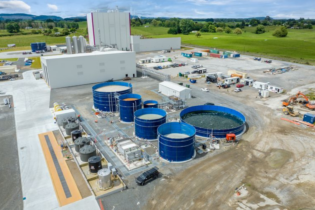Water management and supply measures
Some of the key measures outlined by the mayor in the city’s Critical Water Shortages Disaster Plan includes, among other things, the installation of water management devices. The city also plans to augment supply with new schemes the first of which is expected to come online by December 2017/January 2018 if all goes according to plan.Other water supply measures include projects in desalination, groundwater extraction and water reuse.
“In terms of our Critical Water Shortages Disaster Plan, as with all parts of our operations, we have a disaster plan for all eventualities as every organisation does as part of risk management,” the mayor said. The city’s plan to avoid acute water shortages will be executed in three phases. The City has activated Phase 1, with water rationing through extreme pressure reduction (throttling). “This is a critical stage where we must all do everything we can to stretch the water supply in our dams. As water rationing is intensified, some areas will be affected for short periods of time. This will lead to intermittent, localised temporary water supply disruptions,” De Lille explained.





